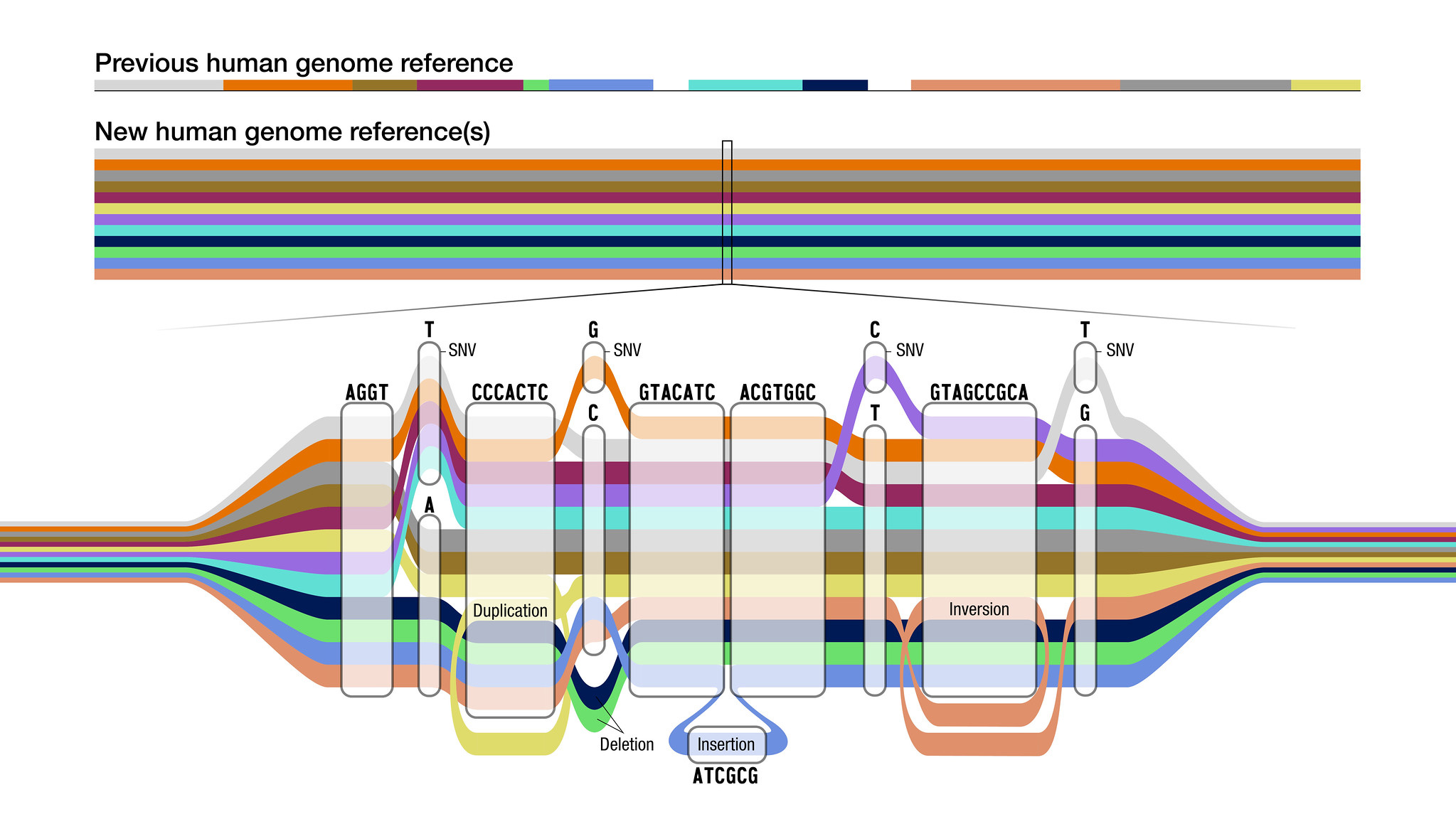The first draft of the human genome was released in 2001, but it wasn’t completed until 2022. Now, a group of scientists are looking to take that project one step further by debuting a more inclusive human genome reference, which they say should expand our understanding of human biology even more.
The original genome reference has been invaluable in humanity’s pursuit to learn more about human biology and push innovations for genomic medicine. It helped launch a new era of scientific discovery back in 2001. However, the original reference has a huge problem; it’s extremely biased, relying predominantly on anonymous volunteers who responded to a 1997 ad in the Buffalo Evening News.
To make a more inclusive human genome reference, scientists needed to take things further and capture the DNA of people across more continents. This new reference, then, uses DNA from 47 individuals from every continent except Oceania and Antarctica. Scientists say it should improve our ability to discover new drugs, understand genetic variants, and build tech to help diagnose diseases.

It’s a huge expansion, as the original was based largely on one individual, with that individual’s DNA making up 70 percent of the original reference. A full breakdown of the new genome reference was published in Nature on Wednesday, outlining the major differences the project has allowed.
According to the National Human Genome Research Institute, which is also working with the scientists on the new reference, the diagram above showcases how the more inclusive human genome draft is like a subway station, offering multiple paths that a single genome can take when scientists compare an individual’s DNA to the overall collection of DNA on display here.
The need for this more diverse reference has been known for a long while now. With this new reference, scientists will hopefully be able to more precisely compare individual genomes to the broader human genome without having to worry about as much bias and missing factors.








